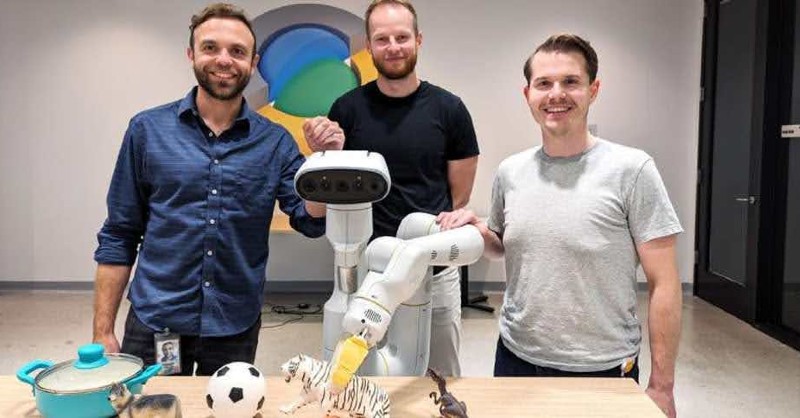
Recently, Elon Musk unveiled new robotic technologies at their “We, Robot” event, highlighting Tesla’s advancements in AI-driven robotics. The company showcased several new models, including the Cybercab and a Robovan, both designed for autonomous transport. The event emphasised Tesla’s push towards integrating robots into everyday life, aiming for a future where these machines assist humans in various tasks.
In the midst of this robotic revolution, Physical Intelligence has made headlines by securing $400 million in funding, boosting its valuation to $2 billion. This San Francisco-based startup focuses on creating software that can be utilised across various types of robots, aiming to streamline the technology that powers robotic operations. With major investors like Jeff Bezos and OpenAI backing it, Physical Intelligence is set to be a significant player in the growing field of robotics.
Investors in this round also included venture capital firms Thrive Capital, which recently invested in Sierra, and Lux Capital, known for backing Applied Intuition. Other contributors were Redpoint Ventures and Bond.
This new investment brings Physical Intelligence’s valuation to $2 billion, up significantly from its $400 million valuation following an earlier $70 million seed round. Reportedly, Physical Intelligence aims to develop software that would work on any robot, doing away with the need to build software for individual tasks.
Key facts about Physical Intelligence and its developments
Flexible AI software for robots
Physical Intelligence focuses on developing software adaptable to any robot, eliminating the need for separate software for each specific task. This could potentially replace the need to create separate software systems for each specific robotic function.
Founding team
Founded in 2024 by Adnan Esmail, Chelsea Finn, Sergey Levine, a professor at the University of California, Berkeley; Karol Hausman, previously a robotics scientist at Google; Quan Vuong, Lachy Groom, and Brian Ichter, a former executive at Stripe, the company has a slew of employees, including the alumni of Tesla, Google, DeepMind, and X.
Launch of π0, a general-purpose robotics model
Recently, Physical Intelligence unveiled its general-purpose robotics foundation model called π0 (pi-zero). The software model enables robots to take on various tasks based on simple text commands, much like large language models used in chatbots. Trained on data that includes images, text, and actions, π0 allows robots to complete complex tasks such as sorting trash, making coffee, or folding laundry. The model’s adaptability in handling diverse instructions is a step toward more universal AI applications in robotics.
Beyond developing brains for robots
The company’s mission extends beyond traditional robot control to creating “brains” for robots, enabling them to interact flexibly in human environments. Physical Intelligence compares this with early chatbot models like OpenAI’s GPT-1, indicating they are still in early stages of developing a truly adaptable robot foundation model.
Focus on physical tasks
Physical Intelligence’s model has shown capability in handling real-world tasks, such as sorting items, folding laundry, and even bussing tables. This requires recognising and managing different objects, a complexity that many AI models struggle with. By developing a model that learns through direct experience and continuous interaction, Physical Intelligence is working to make robots more responsive and capable in real-world scenarios where conditions can be variable and nuanced.
In an increasingly crowded robotics AI field, where companies like Tesla and Figure AI are focused on developing humanoid robots and others such as Covariant are advancing general-purpose robotic software, Physical Intelligence seeks a unique approach. By creating adaptable software that functions across a wide range of robotic hardware, Physical Intelligence aims to provide a universal AI solution for diverse physical tasks, from simple sorting to more intricate manipulations. This strategy could position the company as a foundational player in robotics, offering flexibility and broader applications in sectors that rely on robots for various hands-on tasks.
The post Physical Intelligence secures $400M at a $2B valuation led by Bezos and OpenAI: Can it compete with Tesla? appeared first on Tech Funding News.